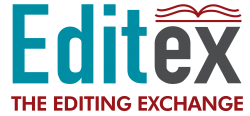Anyone enrolled in a university degree understands the challenges of academic reading. It is a painstaking, time-consuming and stressful task. Unlike reading for pleasure for which many people can spend days and nights sticking with the same book, reading for academic purposes can sometimes cause boredom and frustration. Many people are put off by the academic style of writing, full of specialist terms. Clearly, it requires so much more from readers than other types of reading. Nevertheless, reading for academic purposes is inevitable given the knowledge it provides, whether as a primary source of knowledge or a supporting source for writing academic papers. Undoubtedly, the more effectively one reads, the more thoroughly he or she understands the topic and, of course, the more successfully he or she can present his or her ideas through writing. Rather than reading passively, as with reading for other purposes, academic reading demands the reader’s active and considerable engagement with the text and author. To put it simply, one needs to be ‘critical’. A critical reader will dare to question the author and the text itself. The process of questioning begins as soon as one picks up a book, an article or a journal and decides whether this book is relevant to his or her area of interest. Once he or she begins to read, the reader will have to find out what the text is saying. What is the message of the author? Does the reader agree with the author? Why? Why not? It is through the process of questioning that the ‘argument’, a significant part of academic writing, is developed. The argument will then urge the reader to find out more information from other sources to support his or her argument. By critically engaging with the text, the reader will realise which part of the text is useful and can be used to support or oppose his or her ideas in a convincing and powerful fashion, rather than merely reading and not reflecting upon the text. Reading is a major part of learning and since learning can only take place in an active environment, reading must also be active. A person who can make the best use of reading is one who can make the sense of the text, think about it and be able to use it.


